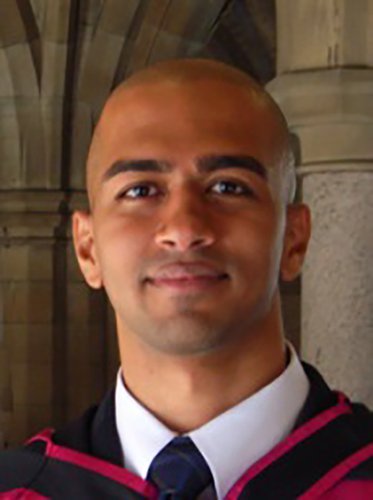
Core Bid Management is a company that provides proprietary paid search systems to search engine marketing agencies and advertisers. The company is able to provide cutting edge solutions that integrate with existing paid search systems and databases. It has developed and successfully deployed the UK’s leading paid search systems, and has been creating artificial intelligence systems for commercial and academic research organisations for over a decade. Core Bid Management helps charities to get Google Ad Grants.
IntelligentHQ interviewed Dr. John Balasuriya, the director of CORE Bid Management.
John Balasuriya has been a pioneer of search engine marketing technology and search engine R&D both commercially and in academia. He was Chief Scientist of the 14th fastest growing technology company in the UK and his work has been cited by the Deloitte Technology Fast 50 and Times Tech Track 100.
Can you tell us about you?
I’m a multidisciplinary research scientist and entrepreneur with a PhD in Computer Science and a long history of working on quantitative problems. I’ve been building systems for digital advertising for the last eight years and involved in search engine R&D for over fourteen years. I enjoy working in different areas and applying theory across different disciplines.
For example, during my PhD I constructed a computer vision system with a biologically motivated artificial retina that looked around a scene, constructing hypotheses about what it sees and behaving differently depending on it’s current task.
A multidisciplinary perspective to solving problems was best captured by the late great physicist Richard Feynman who famously said “If our small minds, for some convenience, divide this universe into parts, physics, biology, geology, astronomy, psychology, and so on – remember that nature does not know.”
You are an entrepreneur with an academic background. Can you tell us about that.
Research in academia is often a decade ahead of what’s going on in industry. The new theories and models presented at academic conferences are often mind-blowing. However academic researchers are significantly handicapped because most of them do not have access to the data and real-world problems that we deal with commercially every day.
It’s a curious situation where people working in industry have access to a huge explosion of data and don’t have the resources to process and analyse the data while academics have lots of research students and other resources in universities but are looking for data and problems to solve. Because of data confidentiality and the proprietary nature of business systems most academics have limited access to commercial data, so jumping from academia to industry becomes a rational option to work with interesting data and problems.

You have been working the bridge between search engines, bid management and big data. How do you see these areas?
There was a revolution in digital marketing when mathematics similar to Nobel prize winning economics models and investment banking algorithms were used to maximise return on investment of tracked online advertising. I was the first in the UK and, I believe, Europe to use these mathematics models to allocate advertising resources and manage advertising bids online.
Bid management using this approach is far more efficient, scalable and easy to effectively parameterise than traditional rules-based bid management methods. It’s yet another example of the benefits gained by cross-pollinating ideas cross disciplines.
You are an entrepreneur and created corebidmanagement.com can you tell us about it?
Core Bid Management is a certified Google Partner that commercially works with advertisers and other agencies. We currently have clients based in the UK, US and China and our areas of particular focus are agency services and advertising technology platforms.
One of your service areas that may interest our readers is digital support for charities. Can you tell us about that?
There is a great deal of help available to registered charities but many charities that are doing amazing work are unaware of the resources available for them. I’m therefore delighted with the work Core Bid Management has done to secure Google Ad Grant funding to help charities with their Adwords paid search. We’ve been able to secure very generous $120,000 per year grants for eligible registered charities and work with a wide spectrum of charities from international charities rescuing abandoned children to London based charities helping local disadvantaged families.
How do you think charities and social enterprises can win getting a strong digital profile?
Charities and social enterprises with an website need a wide digital reach so they can connect with volunteers and donors, the people they are trying to help and with the general public to advocate for causes. Having an engaging website, a constant social media presence and email/newsletter shots are all part of the mix but securing a Google Ad Grant should be a no-brainer for eligible charities. Otherwise there is a danger that a charity’s online content will never be discovered by it’s potentially huge online audience.
How can Google help charities through their program?
Google helps out registered charities with grants to fund Adwords advertising as part of Google’s “Don’t be evil” philosophy. The initial grant is for $120,000 per year (all Google Ad Grants are dollar denominated) and if charities continually spend their whole grant and fulfill other criteria such as having over 1% click-through rate and conversion tracking, Google will increase the grant to $480,000 per year. These sorts of digital ad spend levels will transform most charities so I highly recommend all registered charities apply for a grant.
What advice do you give to charities that want to get Google sponsorship?
Apply for a grant now! These Google programs can start and stop will little prior notice. Existing grantees will continue to get funding but, for example, the $480,000 per year Grantspro awards program was closed for years to new applicants until June 2014. Google also seems to add additional eligibility criteria to the grant application process over the years so it’s definitely in a charity’s interest to apply sooner rather than later before the application process gets even more complicated.
How do Google Ad Grants work? Are there any limitations?
Google Ad Grant funded Adwords accounts have their own unique idiosyncrasies and optimising these can be very different to managing a self-funded Adwords account. A typical Google Ad Grant will pay for a charity’s Adwords paid search advertising for up to $10,000 a month which translates to a fixed $329 per day budget limit. This $329 per day limit means that charities with varying traffic during the week may find that they utilise all their daily grant on weekdays and have grant funds to spare on weekdays.
This surplus grant over the weekends unfortunately does not roll over to the next day. There is also a $2 maximum bid limit in Google Ad Grant funded Adwords accounts so a charity may not be able to successfully bid for highly competitive keywords on Google. In my experience, most charities who secure a Google Ad Grant find it difficult to fully utilise Google’s grant without professional help and end up only spending a few hundred dollars a month out of the $10,000 per month grant, so it can be important to get professional help to manage these Google Ad Grant accounts.
Dr John Balasuriya
Director, Core Bid Management

Dinis Guarda is an author, academic, influencer, serial entrepreneur, and leader in 4IR, AI, Fintech, digital transformation, and Blockchain. Dinis has created various companies such as Ztudium tech platform; founder of global digital platform directory openbusinesscouncil.org; digital transformation platform to empower, guide and index cities citiesabc.com and fashion technology platform fashionabc.org. He is also the publisher of intelligenthq.com, hedgethink.com and tradersdna.com. He has been working with the likes of UN / UNITAR, UNESCO, European Space Agency, Davos WEF, Philips, Saxo Bank, Mastercard, Barclays, and governments all over the world.
With over two decades of experience in international business, C-level positions, and digital transformation, Dinis has worked with new tech, cryptocurrencies, driven ICOs, regulation, compliance, and legal international processes, and has created a bank, and been involved in the inception of some of the top 100 digital currencies.
He creates and helps build ventures focused on global growth, 360 digital strategies, sustainable innovation, Blockchain, Fintech, AI and new emerging business models such as ICOs / tokenomics.
Dinis is the founder/CEO of ztudium that manages blocksdna / lifesdna. These products and platforms offer multiple AI P2P, fintech, blockchain, search engine and PaaS solutions in consumer wellness healthcare and life style with a global team of experts and universities.
He is the founder of coinsdna a new swiss regulated, Swiss based, institutional grade token and cryptocurrencies blockchain exchange. He is founder of DragonBloc a blockchain, AI, Fintech fund and co-founder of Freedomee project.
Dinis is the author of various books. He has published different books such “4IR AI Blockchain Fintech IoT Reinventing a Nation”, “How Businesses and Governments can Prosper with Fintech, Blockchain and AI?”, also the bigger case study and book (400 pages) “Blockchain, AI and Crypto Economics – The Next Tsunami?” last the “Tokenomics and ICOs – How to be good at the new digital world of finance / Crypto” was launched in 2018.
Some of the companies Dinis created or has been involved have reached over 1 USD billions in valuation. Dinis has advised and was responsible for some top financial organisations, 100 cryptocurrencies worldwide and Fortune 500 companies.
Dinis is involved as a strategist, board member and advisor with the payments, lifestyle, blockchain reward community app Glance technologies, for whom he built the blockchain messaging / payment / loyalty software Blockimpact, the seminal Hyperloop Transportations project, Kora, and blockchain cybersecurity Privus.
He is listed in various global fintech, blockchain, AI, social media industry top lists as an influencer in position top 10/20 within 100 rankings: such as Top People In Blockchain | Cointelegraph https://top.cointelegraph.com/ and https://cryptoweekly.co/100/ .
Between 2014 and 2015 he was involved in creating a fabbanking.com a digital bank between Asia and Africa as Chief Commercial Officer and Marketing Officer responsible for all legal, tech and business development. Between 2009 and 2010 he was the founder of one of the world first fintech, social trading platforms tradingfloor.com for Saxo Bank.
He is a shareholder of the fintech social money transfer app Moneymailme and math edutech gamification children’s app Gozoa.
He has been a lecturer at Copenhagen Business School, Groupe INSEEC/Monaco University and other leading world universities.









